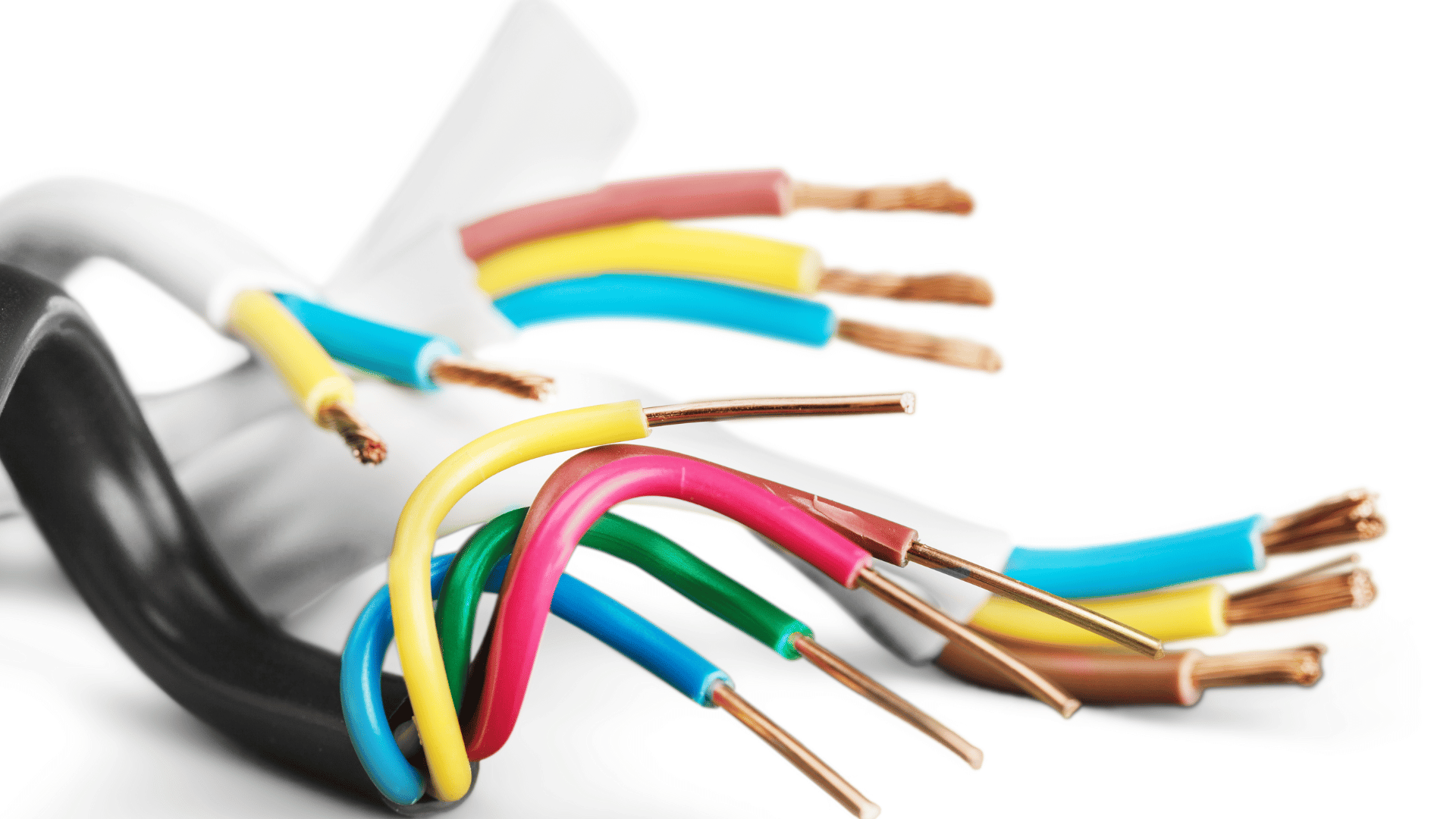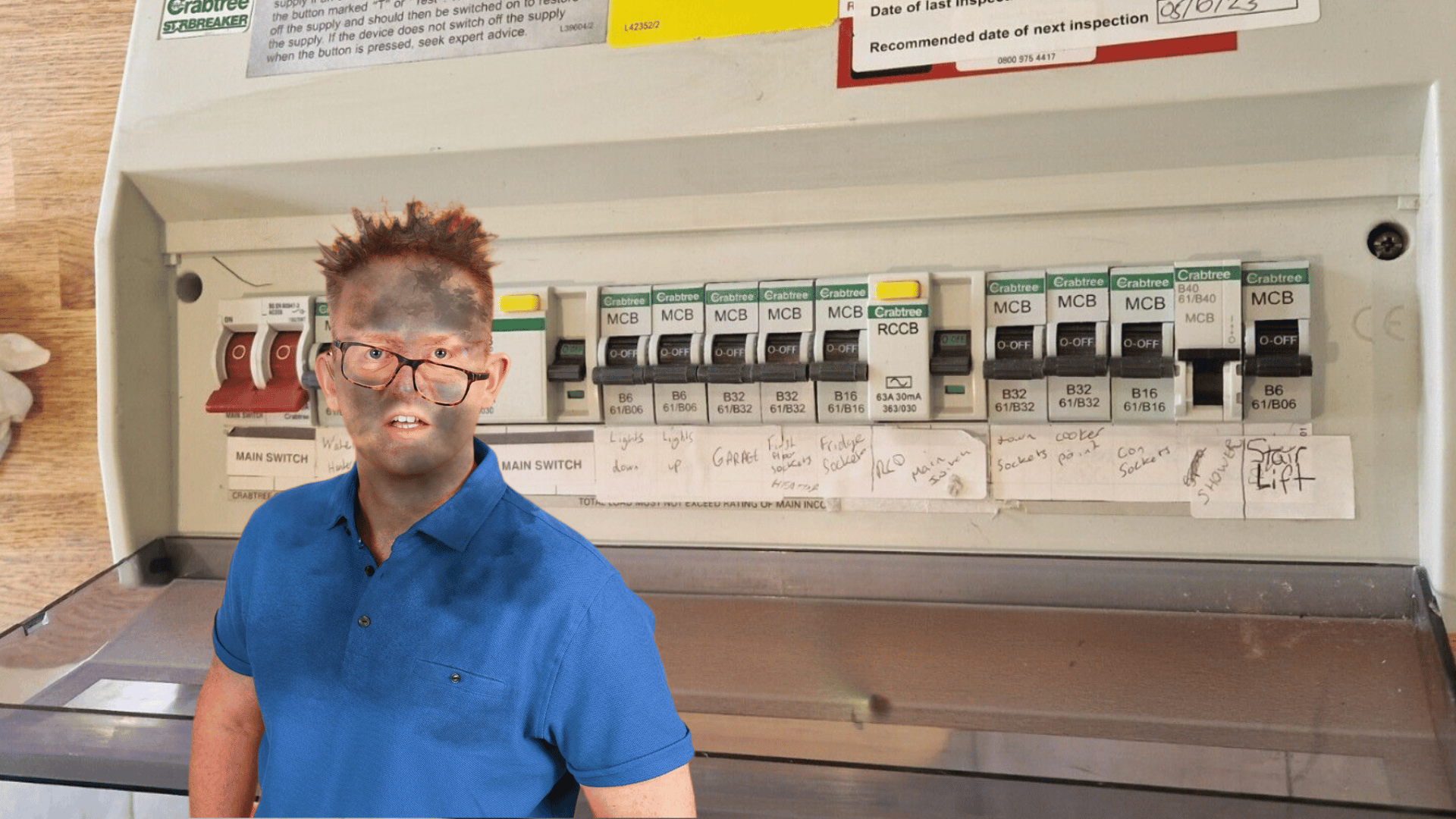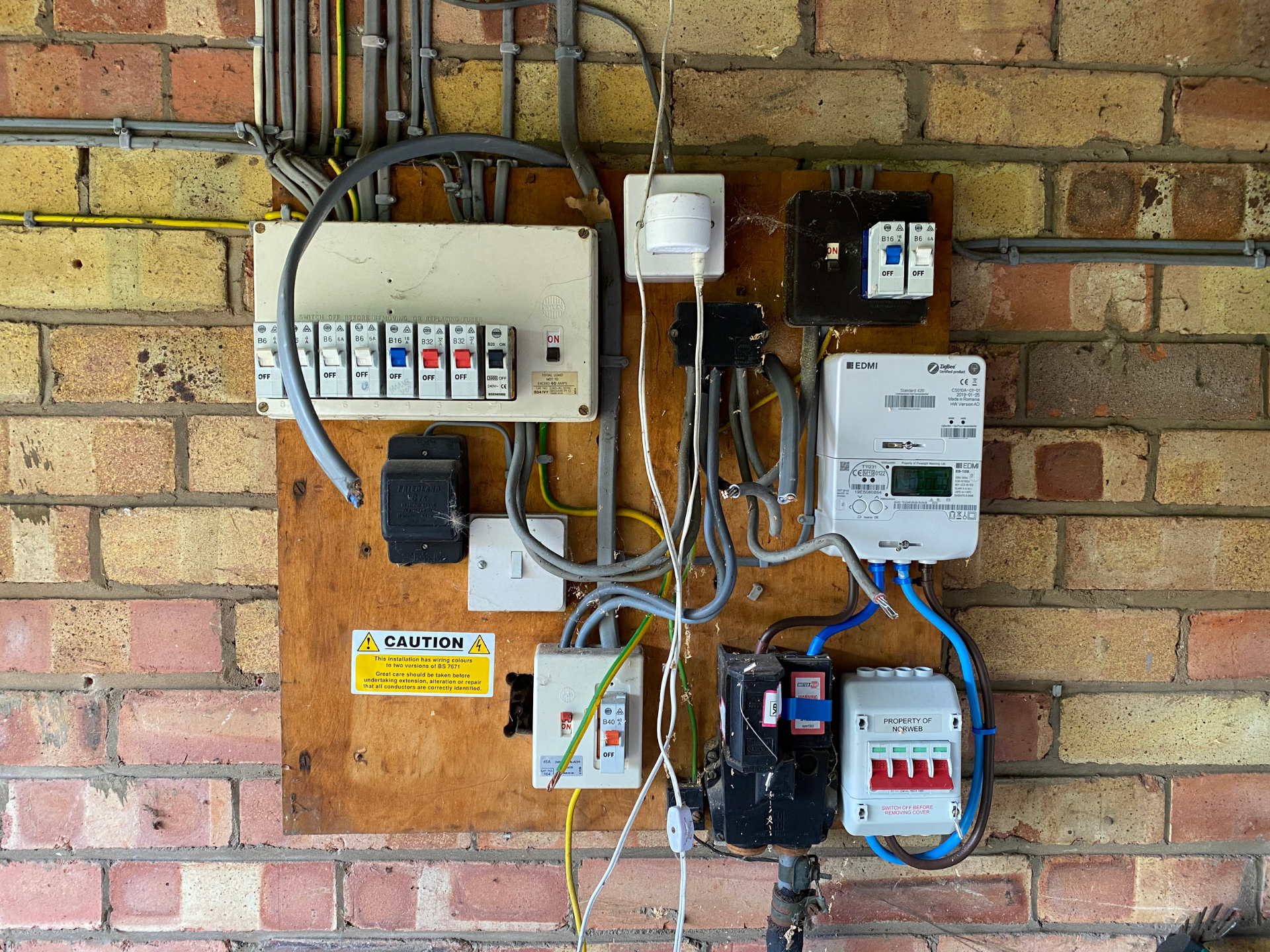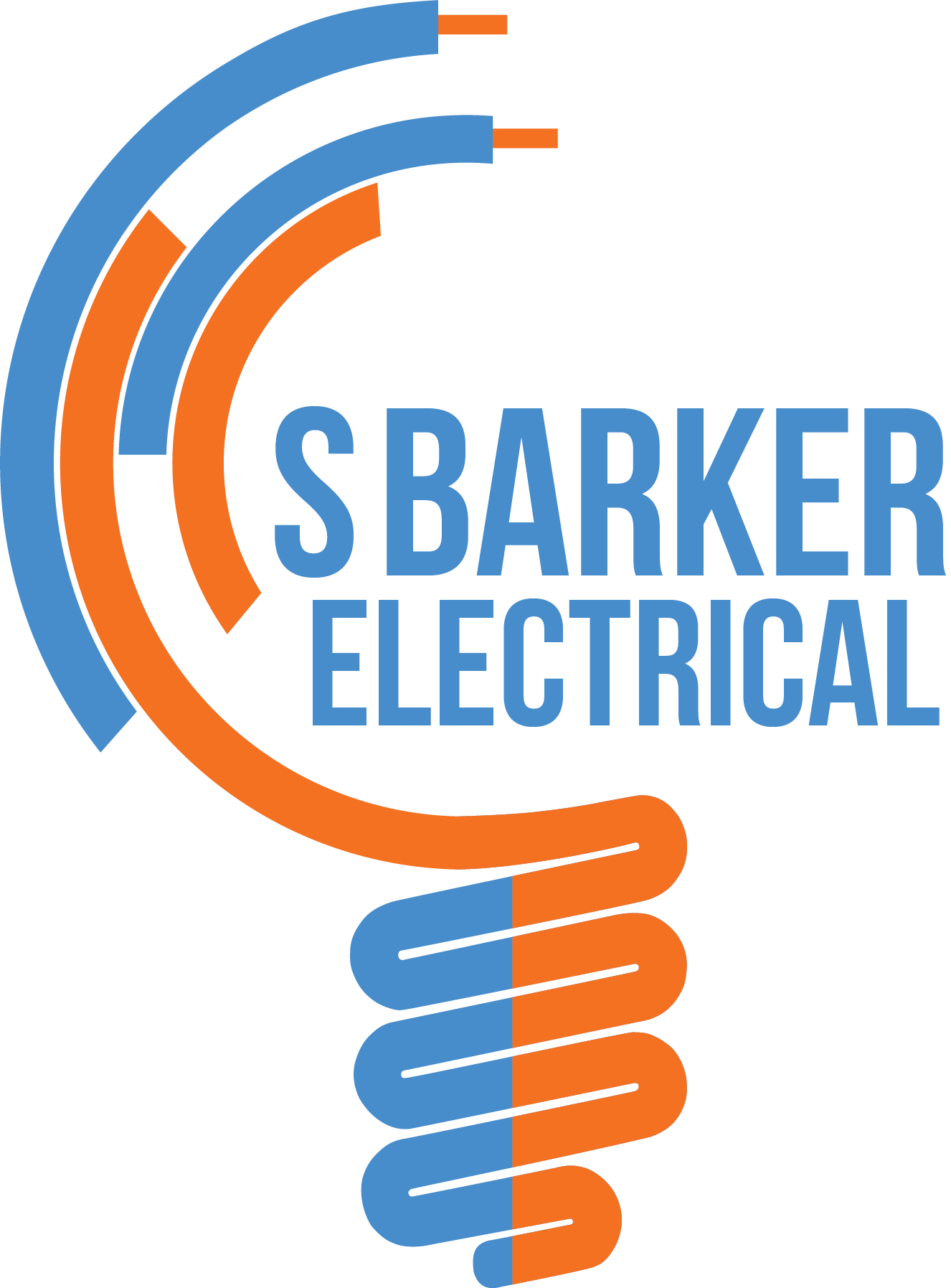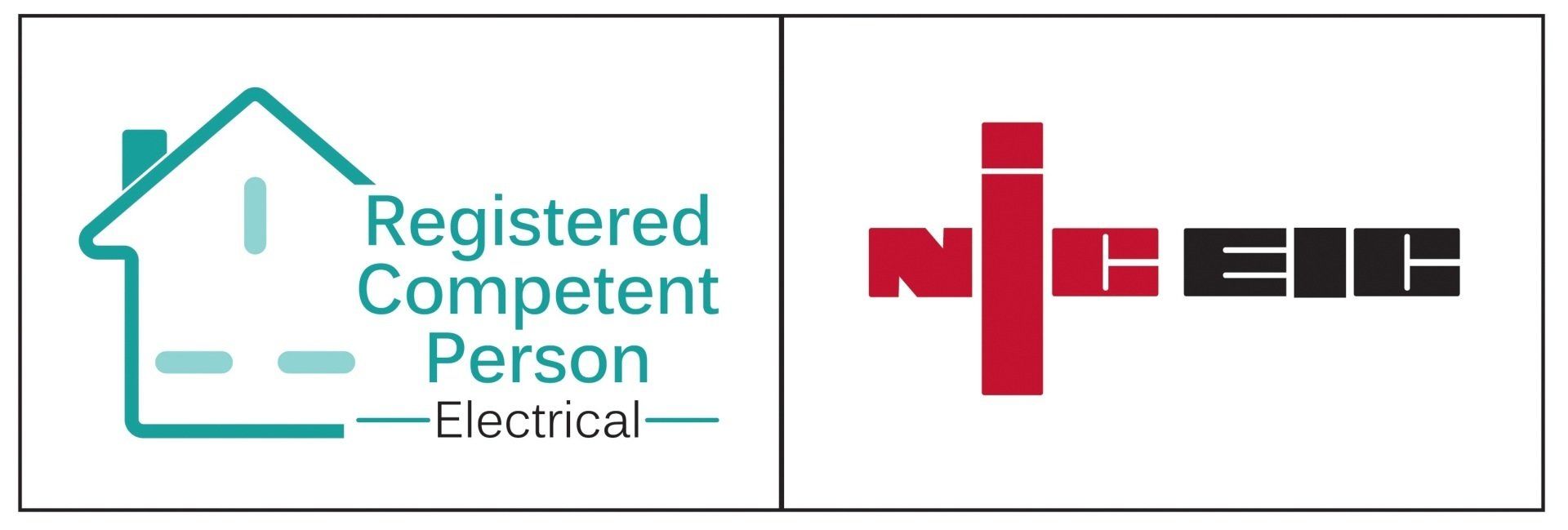By Simon Barker
•
January 27, 2024
Introduction Have you ever thought about what keeps your lights twinkling and your coffee brewing each morning? Yes, it's the silent, invisible hero of your home: the wiring. But not all wiring is created equal, and its lifespan can be as varied as the music genres on your playlist. So in this article, I'm about to send you on an electrifying journey into the world of home wiring. I'll share tales from the trenches, tips to keep you safe, and tricks to ensure your home's electric vibes keep flowing harmoniously. The Champions of Conductivity: Copper vs. Aluminium Copper Wiring: The Rock Star Copper wiring is the Mick Jagger of the electrical world: it's been around forever, and it just gets better with age. Its superior conductivity, durability, and resistance to corrosion make it a top choice for electricians and homeowners alike. But it's not just about being strong and flexible; copper wiring has a certain quality that allows it to carry more current without getting too hot under the collar. Remember back in some of the older buildings and theatres and so on, where the lights were dim and flickering? The charm was there, but the lights? Not so much. Flickering like a candle in the wind. Looking within its walls revealed copper wiring that, despite its age, was still in tip-top shape. A bit of tweaking, some modern touches, and it was singing like it was her debut all over again. Aluminium Wiring: The One-Hit Wonder Now, let's look at aluminium wiring. It had its moment in the limelight. It was affordable and plentiful, it seemed like a good idea at the time. But as we've learned, aluminium tends to expand and contract more than what copper does, leading to loose connections and, in some cases, a fire hazard. Typically the homeowners will notice their lights flickering like a strobe at a disco. With a bit of detective work, it would be traced it back to those aluminium connections. The ultimate solution? A full copper upgrade. It's like replacing the backup singers with a full orchestra—suddenly, everything was in harmony. Environmental Impacts on Wiring Longevity You might not think it, but the environment your house sits in can play lead guitar or villain in the ballad of your wiring's life. Just like a band on a world tour, different climates and venues can either be a smooth gig or a tough battle for longevity. The Coastal Encore Take, for example, homes by the seaside. Romantic? Absolutely. Harsh on wiring? You bet. Salt air can be like an uninvited backstage guest to metal, causing corrosion and reducing the lifespan of your wiring. The solution involves not just updating the wiring but also incorporating materials and methods to shield it from the harsh environment. It's like giving the wiring its own cozy, corrosion-resistant green room. The Damp Basement Gig And then there's moisture - One we all know and love in the older house wiring in Sheffield. It's your wiring's silent critic! Basements, especially damp ones, can be a challenging venue for wiring to perform its best. Moisture can lead to corrosion, and in some cases, dangerous short circuits. I see a lot of basements locally where the wiring was suffering from the damp conditions. I had to reroute some of the circuits, add better insulation, and introduce dehumidifiers to dry out the air. The result? A standing ovation from the homeowner and a safer, drier basement. The Heavy Metal Tour: Understanding Load and Usage Every appliance in your home, from the headlining dishwasher to the supporting act of your LED lights, adds to the electrical load, just like adding more dates to a tour! But overload the circuit, and you're setting the stage for a showstopper nobody wants: an electrical fault! Balancing the Band Balancing the load is like arranging a setlist for a concert. You don't want all your heavy hitters playing at once, overwhelming the system. Spreading out the energy consumption can keep the harmony and prevent your system from tripping. I once helped a family whose home was constantly tripping breakers during their dinner time, where all appliances on full blast. We rearranged their "setlist," adding some dedicated circuits for the heavy users (Such as Oven and Hob), and suddenly, every meal was like an encore performance with no interruptions. Maintenance: The Unsung Hero of Wiring Longevity In the world of rock 'n' roll, behind every great performance is a crew tirelessly checking every cable, tuning every instrument. The same goes for your home's wiring. Regular check-ups by a qualified electrician can spot a damaged, worn or corroded cable, as well as a loose or tired outlet before it becomes a headline act for the wrong reasons. A Close Call Behind the Walls There's a story I like to share about a routine maintenance check that turned into a lifesaving gig. A home, seemingly serene and in perfect harmony, was hiding a sinister secret behind its walls: an overheating connection, worn down by years of unnoticed overloading and vibration (through day to day use) in the house too. It was a disaster waiting for its cue. But, thanks to a scheduled maintenance check, I caught it just in time, replacing the worn sections and averting what could have been a tragic finale. This can happen with several things around the home such as switches, sockets, shower pullcords and also other places where there is a connection made (or a damaged section or weakness in a cable). Even worse are those buried Junction Boxes, because those aren't visible under the floors or above the ceilings if they start to overheat!! Modern wiring removes the need for any buried connections that can come loose, overheat and catch fire. Upgrades: Keeping Your Home's Wiring in the Limelight Just as bands evolve, adding new sounds and instruments to stay relevant, your home's wiring needs upgrades to keep up with modern demands. With the advent of high-tech appliances and smart home devices, yesterday's wiring may not hold the tune for today's technological symphony. From Vintage to Virtuoso Many homes have older wiring and minimal protection that is not capable of acting quickly with faults today. Even some of the more recent updates are not as fast acting as the latest and does not have the individual control, where half of the circuits tripping is an inconvenience! Add to that New Devices with LED and DC Circuits (Such as washing machines) can actually PREVENT even some of the more recent devices from tripping when they should! I recently embarked on an upgrade tour, modernizing of such an older home, updating their wiring while preserving the home's vintage charm. The result was a perfect blend of classic and contemporary, ensuring their home stayed safe and sound, ready for the next generation's playlist. DIY vs. Professional: Knowing Your Limits In the DIY era, it's tempting to take on the role of roadie, electrician, and sound tech for your home's electrical system. But just as tuning a guitar requires a certain skill, so does tinkering with your wiring. A Shocking Attempt at DIY A memorable encore in my career was helping a homeowner (An Engineer in this case!) who thought replacing an outlet was as easy as playing air guitar. A simple task turned into a shocking experience, literally, leading to a nasty shock and a call for help. It was a stark reminder that some gigs are best left to the professionals, ensuring the safety of the audience—your family. You would not believe the amount of calls from wives that I get, telling me to come and fix their husband's errors! Best to let me do those jobs quickly, rather than you taking a long time and still getting it wrong. Let's both do what we're best at ;-) Future-Proofing Your Home's Electrical System As we look to the horizon, the future of home electrification is bright, with smart homes, electric vehicles, and renewable energy sources becoming the headlining acts. Future-proofing your home's electrical system is like securing VIP tickets to the greatest show on Earth. The Smart Home Encore Imagine a home where every device communicates in harmony, optimizing energy use and providing unparalleled comfort and convenience. That's the smart home, and it requires an electrical system that's not just a backup band but a full-fledged orchestra. Upgrading to accommodate smart devices, from thermostats to refrigerators, is like rehearsing for the biggest gig of your life, ensuring your home is ready to rock into the future. Conclusion So there you have it, a backstage pass to the world of home wiring. From the materials that make up the backbone of your electrical system to the environmental factors that test its limits, understanding the intricacies of your home's wiring is key to ensuring a safe and harmonious living space. Whether it's time for a routine check-up, an upgrade to accommodate the latest tech, or a call to a professional for those high-voltage tasks, taking care of your home's wiring is like fine-tuning your favourite instrument, ensuring it's always ready for the next big performance. Remember, your home's wiring is the unsung hero, working behind the scenes to power your life's soundtrack. Treat it with care, and it'll ensure your home remains a haven of comfort, safety, and energy efficiency. So, plug in, turn up the volume, and let the good vibes flow, secure in the knowledge that your home's wiring is up to the task of keeping the show going.
